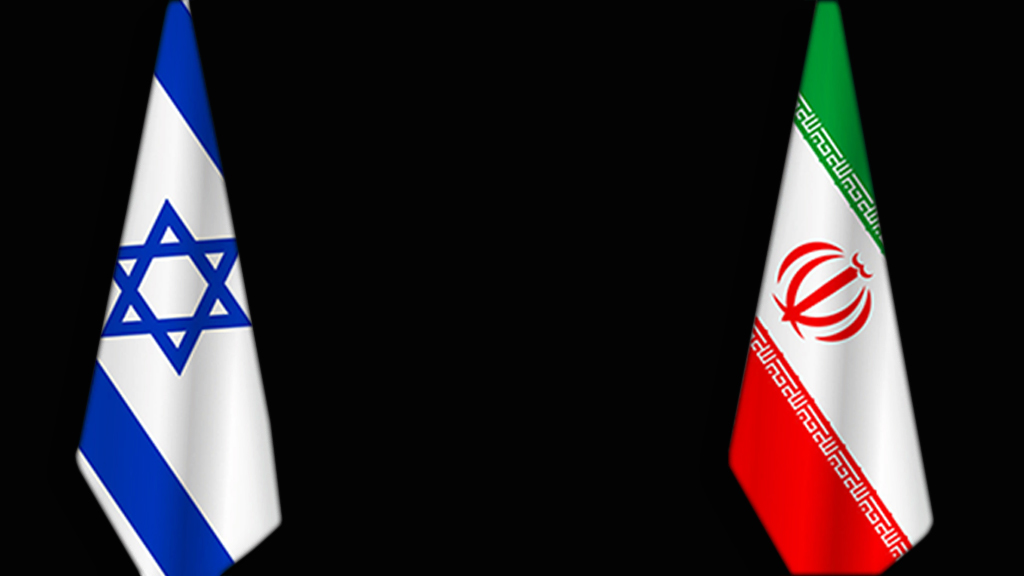Cease-fire in Lebanon: Catalyst for regional shifts?
After approximately 14 months of conflict, a cease-fire between Israeli and Hezbollah forces in Lebanon came into effect at 4 a.m. local time on Nov. 27. Mediated by the United States and France, the cease-fire is fundamentally based on the revival of United Nations Security Council Resolution 1701. According to this agreement, Hezbollah forces will withdraw north of the Litani River, while Israeli forces will retreat south of the Blue Line. This process is expected to be completed within 60 days.
More


Geopolitical tensions: Middle East in global rivalry
With the full and unconditional support of the United States and Western European countries, the Israeli government has been attacking Middle Eastern countries and committing genocide against Palestinians living in the Gaza Strip. The first step of Israel’s expansionist policies in the Middle East has been the increased occupation of Palestinian lands.
More
Tensions between Iran and Israel escalate, raising fears of full-scale war amid ongoing regional conflicts
Erdoğan’s remarks frame Israel as a looming national security threat to Türkiye, intensifying concerns over its moves in Gaza and the broader Middle East
The Ambassador of Palestine to Ankara, Faed Mustafa, stated, "While the whole world is talking about a two-state solution, Israel alone is trying to destroy, kill, and eliminate this solution."
A full year ago this week, I was in Ankara for a meeting. When Hamas launched its attacks on October 7, the Palestinian issue quickly became the main agenda. It became evident that Israel was facing significant security vulnerabilities, and there was much discussion about the timing of Hamas's actions. There was a consensus that Israel would respond disproportionately. It was clear that the conflict between Israel and Hamas was entering a new phase, and discussions were underway about the steps needed for a political resolution after the conflict. Looking back a year later, it’s hard to believe that no one expected Israel to shift into a "perpetual war" mode by rendering Gaza unlivable and extending the conflict to other countries.
A year of flames in Gaza
In the wake of the Al-Aqsa Flood, the Hamas attack against Israel on Oct. 7, 2023, Israel initiated a large-scale military operation against the Gaza Strip. The asymmetric and intense military attacks ended up with genocide. So far, Israel has killed more than 42.000 Palestinians, most of which are innocent children and women, wounded more than 90,000 and displaced more than 2 million people. Israeli security forces hit civilian residential areas, including schools, hospitals, ambulances, mosques, churches, tents, refugee camps and the U.N. centers. Eventually, Israeli forces destroyed almost all of the Gaza Strip. With the unconditional support of Western countries such as the United States, Germany and the United Kingdom, Israel violated all principles of international humanitarian law in front of the world.
More


Escalation spiral and looming war in the Middle East
With new actors joining the fray and Israel's aggressiveness intensifying, the Middle East braces for a broader regional war
More
President Erdoğan dedicating a significant portion of his UN speech to Gaza highlighted not only the importance of the Palestinian issue for Türkiye but also its central role in regional peace and global governance. The moral clarity and call to action on this matter, which has been a recurring theme in Erdoğan’s past speeches, carried considerable weight. The UN, established to ensure international peace and security, has been paralyzed in addressing the Palestinian issue due to its structural problems and inability to move beyond great power rivalries, illustrating the crisis of the international order. Türkiye’s insistence on keeping the Palestinian issue on the global agenda is crucial for its national interests, regional balance, and the future of the international system.
Israel, which has paralyzed the Hezbollah organization, took a further decisive step by killing Hassan Nasrallah, the longtime leader of Hezbollah, on Sept. 27. All observers agree that the killing of Nasrallah will dramatically influence the future of not only Hezbollah and Lebanon but also the Middle East. In this article, I will underline some of the implications of this killing.
Israel's latest covert operations, indiscriminately targeting both soldiers and civilians, have now been directed at Hezbollah. In a coordinated attack, Israel detonated devices placed in the pagers and radios of thousands of Hezbollah members, a move that could be studied in intelligence courses for its precision. Previously, Israel’s assassination of Ismail Haniyeh in Tehran had exposed a major security flaw in Iran. This new operation, injuring thousands of Hezbollah members, now reveals significant security vulnerabilities within Hezbollah itself. If Hezbollah responds to this provocation, which marks Israel’s latest attempt to escalate tensions in the region, war seems inevitable. However, should the U.S. intervene behind the scenes to prevent Hezbollah from engaging Israel, it would signal that Iran is prioritizing a potential post-election deal with the U.S. over immediate conflict.







